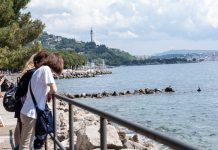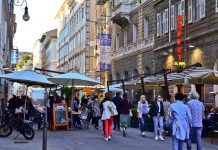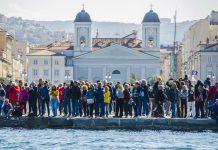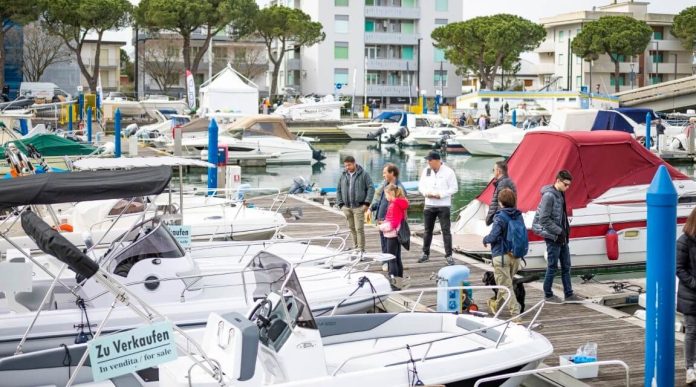by EH
The Friuli Venezia Giulia region is positioning itself as a key player in the growing recreational boating sector following the enactment of a new law designed to support the industry’s expansion. The law, which took effect on January 1, aims to streamline regulations and improve infrastructure to boost the region’s appeal to both domestic and international tourists.
Sergio Emidio Bini, the Regional Councillor for Productive Activities, highlighted the importance of the new legislation during a public event in Lignano, attended by local officials including Mayor Laura Giorgi and the mayors of Latisana and Marano, Lanfranco Sette and Mauro Popesso. The law’s provisions are expected to have a direct impact on the nautical, services, and specialized craftsmanship sectors, which together employ around 10,000 people and comprise roughly 1,500 businesses in the region.
“The recreational boating industry is a strategic economic driver for the region,” Bini said, noting that it includes everything from international companies to small shipyards and artisans working in marine mechanics and woodworking. The sector is described as labor-intensive and high in added value.
Bini also pointed to the resurgence of nautical tourism after the pandemic as a significant factor in the sector’s growth. The number of berths in the region has risen to over 15,000, with demand continuing to expand. “We needed a law that would allow us to intervene effectively,” Bini remarked, explaining that the regional government has allocated an initial €2.7 million in funding to support the law’s implementation. The government is prepared to increase this amount should local demand for investment in the sector rise.
Key components of the law include a comprehensive survey of all regional berths, including less-known and inland locations, to map the region’s entire nautical assets. Additionally, the law will introduce funding for the modernization of maritime infrastructure, with a focus on marinas such as Lignano’s. Improvements planned for the Lignano marina include upgrades to docks, lighting, reception areas, and food and beverage services, with an initial investment of €3.5 million.
Bini emphasized that these efforts are just the beginning. “We want to make our facilities more attractive to tourists and boaters, with a strong emphasis on international visitors,” he said.
The law also includes measures to support sustainable practices within the industry, such as incentives for boat rentals for tourism, the disposal of abandoned vessels, and the ecological conversion of marine engines to reduce environmental impact. Additional funding will be available for businesses seeking to modernize their nautical tourism offerings.
As part of its promotional efforts, the regional government will collaborate with PromoTurismoFVG to promote Friuli Venezia Giulia at major international boat shows. The goal is to enhance the region’s reputation as a premier destination for recreational boating.
In concluding his remarks, Bini emphasized the importance of forward-thinking policies for the region’s future. “Believing in the future means overcoming old approaches and working together,” he said. “Only through this collaborative effort can we achieve something truly significant.”
Following the announcement, Bini officially opened the seventh edition of the Lignano Boat Show, which will run over two consecutive weekends through April 6. The event, organized by the Noi Operatori di Aprilia Marittima Association in collaboration with PromoTurismoFVG, will feature a range of marine exhibitions and events. This year, powerboat racing will return to the waters off Lignano and the Marano Lagoon, with the Italian Powerboat Touring Cup Championship race scheduled for April 6.































